Evans v The Owners – Strata Plan No. 40841 [2025] NSWCATAP 113: NCAT Appeal Dismissed – No Breach of Section 106 or Grounds for Compulsory Management Found
- Home
- Evans v The Owners – Strata Plan No. 40841 [2025] NSWCATAP 113: NCAT Appeal Dismissed – No Breach of Section 106 or Grounds for Compulsory Management Found

Executive Summary
In Evans v The Owners – Strata Plan No. 40841 [2025] NSWCATAP 113, the NCAT Appeal Panel dismissed an appeal lodged by a lot owner seeking to challenge findings of no breach of section 106(1) of the Strata Schemes Management Act 2015 (SSMA) and no basis for compulsory strata management under section 237.
The Appeal Panel refused an extension of time for the appeal and upheld the Tribunal’s orders dismissing all claims. This case provides important guidance on strata maintenance obligations, common property disputes, and evidentiary requirements in NCAT strata proceedings.
Pobi Lawyers successfully acted for the Owners Corporation (Respondent) in defending the appeal.
Key Legal Issues in Strata Law Addressed
- Whether audible noise and alleged fire risks from a kitchen exhaust system constituted failure by the Owners Corporation to repair and maintain common property (section 106(1) SSMA);
- Whether sufficient evidence was provided to justify a statutory work order under section 106(5);
- Whether governance failures warranted a compulsory strata manager appointment (section 237 SSMA);
- Whether an appeal commenced outside the prescribed 28-day timeframe should be accepted;
- Whether a costs order against the appellant was justified.
Background and Procedural History
The appellant, Ms Evans, owned a lot in a four-lot strata scheme. Her lot was used predominantly for short-term holiday rentals. In January 2023, she filed proceedings in NCAT alleging that a kitchen exhaust fan servicing Lot 1 and venting through her lot created noise and fire safety concerns. She sought orders for repair, statutory enforcement, and the appointment of a compulsory strata manager.
On 5 January 2024, NCAT rejected all claims. It found no breach of section 106(1) SSMA, refused to make a statutory work order, and declined to appoint a compulsory managing agent under section 237. Costs were awarded against Ms Evans on 3 April 2024. An appeal filed on 1 May 2024 was nearly three months out of time.
Appeal Panel Findings – Analysis and Key Takeaways
1. Time Extension Refused
The appeal was filed well outside the 28-day limit under rule 25(4)(c) of the Civil and Administrative Tribunal Rules 2014. The Appeal Panel refused an extension, noting the absence of a satisfactory explanation for the delay and the lack of merit in the appeal.
2. Section 106 of the SSMA – No Breach Found
The Tribunal had correctly found that the exhaust system was operational and not in disrepair. The Appeal Panel agreed that the Owners Corporation had no statutory obligation to upgrade functioning common property. Noise emissions alone do not establish disrepair under section 106(1) SSMA.
3. Fire Risk – Insufficient Evidence
Ms Evans failed to provide credible expert evidence or warnings to the Owners Corporation about the fire risk. The Appeal Panel endorsed the Tribunal’s view that the allegations were speculative and unsupported.
4. No Statutory Work Order Justified
Referring to Glenquarry Park Investments Pty Ltd v Hegyesi [2019] NSWSC 425, the Appeal Panel affirmed that statutory work orders under section 106(5) require reliable photographic or expert evidence. None was provided.
5. Section 237 of the SSMA SSMA – No Dysfunction Justifying Appointment
The Tribunal found the scheme was operational, and disputes did not rise to a level justifying compulsory management. The Appeal Panel agreed that section 237 should only be invoked in exceptional circumstances.
6. Costs Order Upheld
The Tribunal’s order for costs under section 60 of the Civil and Administrative Tribunal Act 2013 was lawful and appropriate. Ms Evans’s case lacked merit and unnecessarily prolonged proceedings.
Strata Law Principles Clarified in this Case
- The duty under section 106(1) SSMA is limited to maintenance and repair, not improvement or enhancement.
- Functional systems generating incidental noise do not constitute defective common property.
- Allegations of fire hazards or safety risks must be substantiated with probative evidence.
- Appeals filed out of time require both valid justification and arguable merit.
- NCAT will not interfere with factual findings unless there is a demonstrable legal error.
- Costs can be awarded when proceedings are unreasonably prolonged or lack merit.
Outcome
The NCAT Appeal Panel refused to grant the extension of time, and the appeal was dismissed in full.
Practical Takeaways
- Owners Corporations are not liable to upgrade functioning systems on common property merely because a lot owner prefers a quieter or newer installation.
- If there are complaints about noise or safety, the burden is on the lot owner to produce credible evidence, preferably from qualified experts.
- Minor internal disputes and allegations unsupported by clear evidence are unlikely to justify a compulsory strata manager under section 237.
- Owners Corporations should maintain robust records of all correspondence and maintenance actions, especially when dealing with lot owner complaints, to defend potential proceedings.
- Legal costs can be recovered in NCAT where an application is without merit or unnecessarily prolongs proceedings.
Prepared by: Pobi Lawyers – Strata Lawyers for the successful Respondent Owners Corporation.
Disclaimer
This article was published by Pobi Lawyers and the material in it is intended only as general information. This does not constitute legal advice, nor create any solicitor-client relationship. We recommend that you seek your own independent legal advice in relation to your own individual circumstances, before acting or relying on the contents of this article. Pobi Lawyers shall not be responsible for any reliance placed on this information, and its contents are liable to change at any time without notice.




